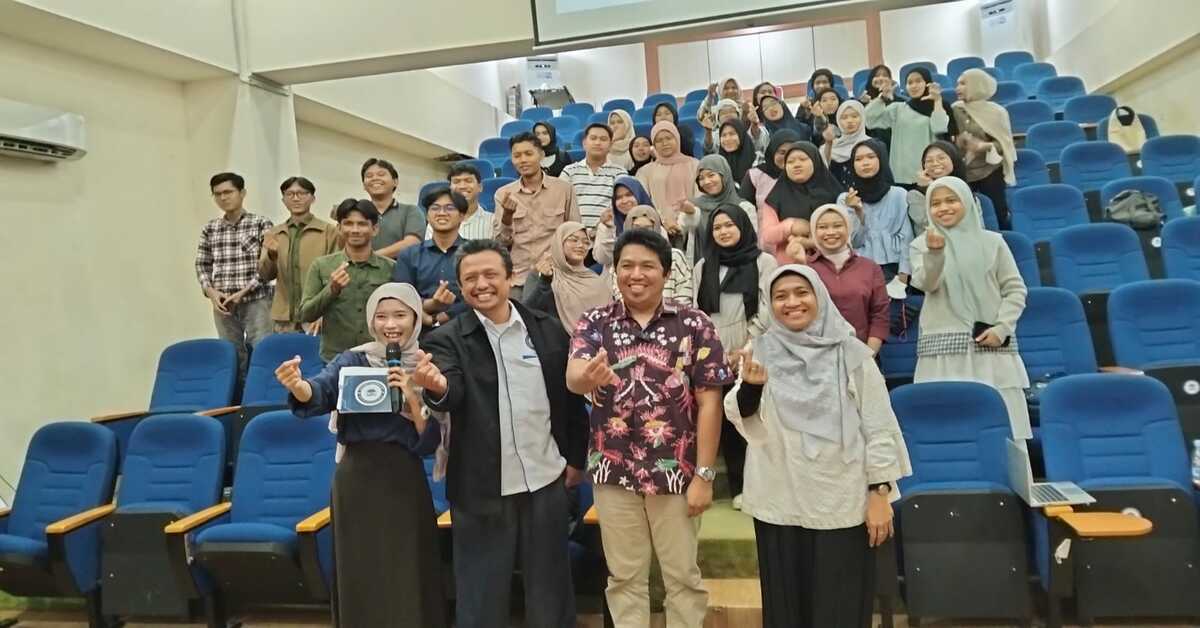Day Two of the Academic Writing Workshop for the Development Economics Study Program: BRIN Researchers Explain IMRaD
Jakarta, October 28, 2025. The Development Economics Study Program and Sharia Banking Master's Program at the Faculty of Economics and Business, UIN Syarif Hidayatullah Jakarta, continued its academic writing workshop series, featuring a guest speaker from the National Research and Innovation Agency (BRIN), Pihri Buhaerah. On the second day, the workshop focused on the topic “From Proposal to Article Publication,” which improved students' abilities in designing, writing, and publishing structured and high-quality scientific papers. Through the They Say/I Say and Blueprint Research approaches, Pihri Buhaerah provided comprehensive guidance so that participants could write academic articles based on scientific principles and strong research logic.
The material was divided into three main sessions:
Pre-Writing – building a scientific writer's mindset by emphasizing that writing is a habit, not just inspiration. Participants are invited to explore research ideas through the FINER criteria (Feasible, Interesting, Novel, Ethical, Relevant) and compile a research blueprint that includes research questions, objectives, data types (primary or secondary), dependent and independent variables, and the analysis methods to be used.
Writing Process – participants are introduced to the structure of scientific articles in IMRaD format (Introduction, Methods, Results, and Discussion).
The Introduction section is discussed starting from the hook and significance of the topic, literature review and research gap, research contributions, research questions, to the article roadmap.
The Methods section covers data sources and periods, variable definitions, empirical designs, and identification strategies.
The Results section presents descriptive statistics, main results, and robustness checks accompanied by tables and graphs.
The Discussion section emphasizes the interpretation of results, comparisons with previous literature, theoretical and policy implications, as well as limitations and directions for further research.
Participants also learn to write effective abstracts using a formula that includes context, research gap, objectives, methods, main findings, and implications. In addition, Pihri Buhaerah explains how to select relevant keywords (4–6 terms) and strategies for creating informative, creative, and interesting article titles with an optimal length of 8–12 words.
Post-Writing – focuses on revision and publication strategies. Participants are introduced to the stages of macro revision, meso revision, and micro revision, as well as a final checklist before submitting manuscripts to journals: from the suitability of the abstract to the content, the completeness of citations, to the format in accordance with the guidelines of the target journal.
In the closing session, the speaker explained the 12-Week Publication Roadmap, which helps researchers manage their research progress systematically, from proposal preparation, data collection, analysis, drafting, revision, to submission to scientific journals. This guide is equipped with a Weekly Progress Tracker and internal support such as academic guidance, writing consultation, and library resources, as well as external support through writer communities and professional associations. Through this workshop, it is hoped that students will be able to transform their initial ideas into scientific works ready for publication, while also fostering a culture of research and academic writing within the Faculty of Economics and Business at UIN Syarif Hidayatullah Jakarta. (AC)

